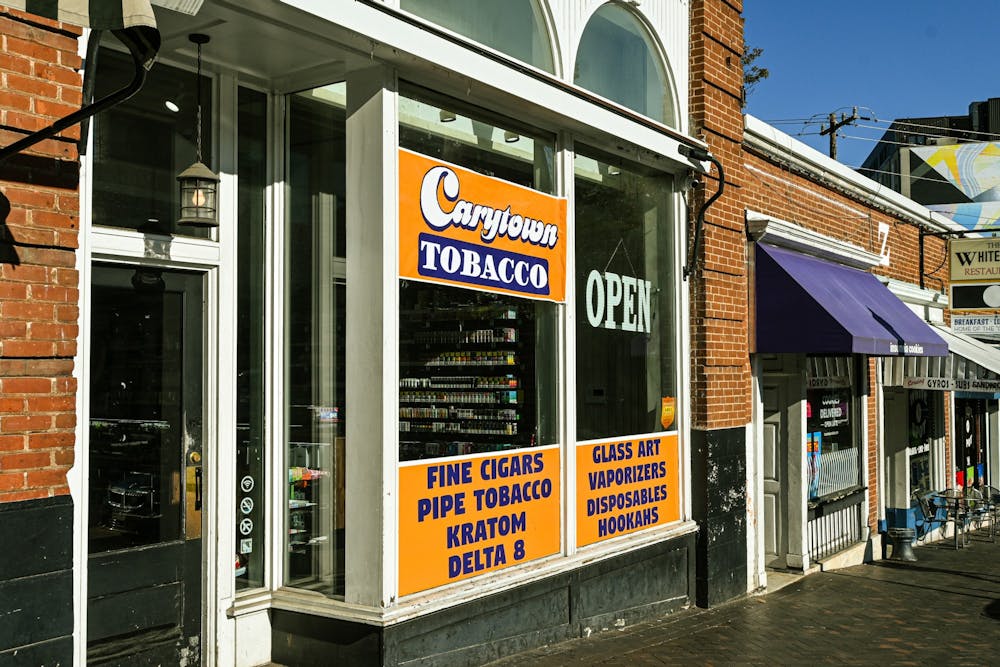During the 2021 legislative session, Democrats in the General Assembly passed a landmark bill to legalize marijuana possession, becoming the first southern state to do so. But while possessing under one ounce of marijuana became legal immediately, dispensaries and retail sellers will not be able to operate until 2024. Further legislation and regulation needs to be passed — this didn’t happen in the General Assembly’s most recent session when lawmakers failed to come to a consensus on how to begin the process of regulating and selling marijuana products, putting the safety of Virginians in jeopardy. The assembly’s inability to properly regulate and legislate retail sales has led to a gray-area where the drug is legal to possess but not to purchase — a gray-area that could cost lives.
When the assembly first legalized marijuana in 2021, both chambers and the governorship were controlled by Democrats — who are generally more in favor of marijuana legalization. But the bill that was passed stated that further laws and regulations would have to be agreed upon in the assembly for dispensaries to open in January 2024. With Republicans now in control of the House of Delegates and the governorship, the conditions for those agreements are far less favorable, leading to a general stalemate on the issue. A drug that is legal to possess and grow in the home — but not to purchase from a storefront — makes consumption especially dangerous given that there is no active regulatory body checking the content of the marijuana people are consuming. This is the gray-area Virginians are living in. The General Assembly must move forward with regulation of marijuana sales in order to save lives from lacing and over-concentration.
In February, the House considered two bills which would have established retail sales by the planned date while also allowing businesses to take tax deductions on their sales, and a bill in the Senate would have done something similar None of these bills made it past committee votes, increasing uncertainty over the future of legalization. There were also bills that would have moved the legalization process backward — one Republican budget in the House proposed a 70 percent budget cut to the state’s marijuana regulatory agency, a body that regulates medical marijuana use and would ultimately regulate marijuana should it be sold in retail stores. Not only did the assembly not make any progress on legalization, the state actually attempted to move backwards by cutting the regulatory budget.
Regulation is key to the safety and accessibility of any product on the shelves. After all, the Food and Drug Administration was created to enforce food safety and quality standards on the items Americans consume — why should a legal drug not face the same safety checks? The truth is that a lack of regulation is what has the potential to make this gray-area so dangerous. In 2020, an average of four Virginians died from an opioid overdose each day — and in 2021, the lethal drug fentanyl was responsible for 76.4 percent of all Virginia drug overdose deaths. While the 2023 legislative session produced eight bills to combat the crisis, not a single bill related to regulating marijuana sales passed. This failure is frustrating because a root cause of fentanyl deaths stems from drugs that are easier to obtain and not even outright illegal, like marijuana. When we purchase Tylenol, alcohol or a gallon of milk at the grocery store, we have faith that what you are consuming is safe because these products must meet regulatory standards. The failure to properly regulate the sale of marijuana constitutes a threat to the people of Virginia by leaving us susceptible to the epidemic of unintentional deaths from drug overdose, including fentanyl deaths.
The reality remains that unless the state completely reverses course — which would require both Democratic and Republican lawmakers to agree to do so — marijuana is legal to possess in Virginia. Recent efforts to set up retail sales have been unsuccessful, leaving Virginians' safety at risk In Charlottesville, many different legal THC products can be purchased at convenience stores — making them widely available to students. There are also, of course, illegal ways of obtaining marijuana that are less safe. If marijuana is not regulated for sale but continues to remain legal to possess, it leaves all users — including University students — at risk of purchasing unregulated, unsafe and potentially lethal forms of marijuana. Ahead of this year’s elections, Youngkin and the Republicans have a chance to prove to voters that their policies have made Virginia safer, but their inability to act on this life-threatening issue is doing just the opposite.
Ford McCracken is a Senior Associate Opinion Editor for The Cavalier Daily. He can be reached at opinion@cavalierdaily.com.
The opinions expressed in this column are not necessarily those of The Cavalier Daily. Columns represent the views of the authors alone.





